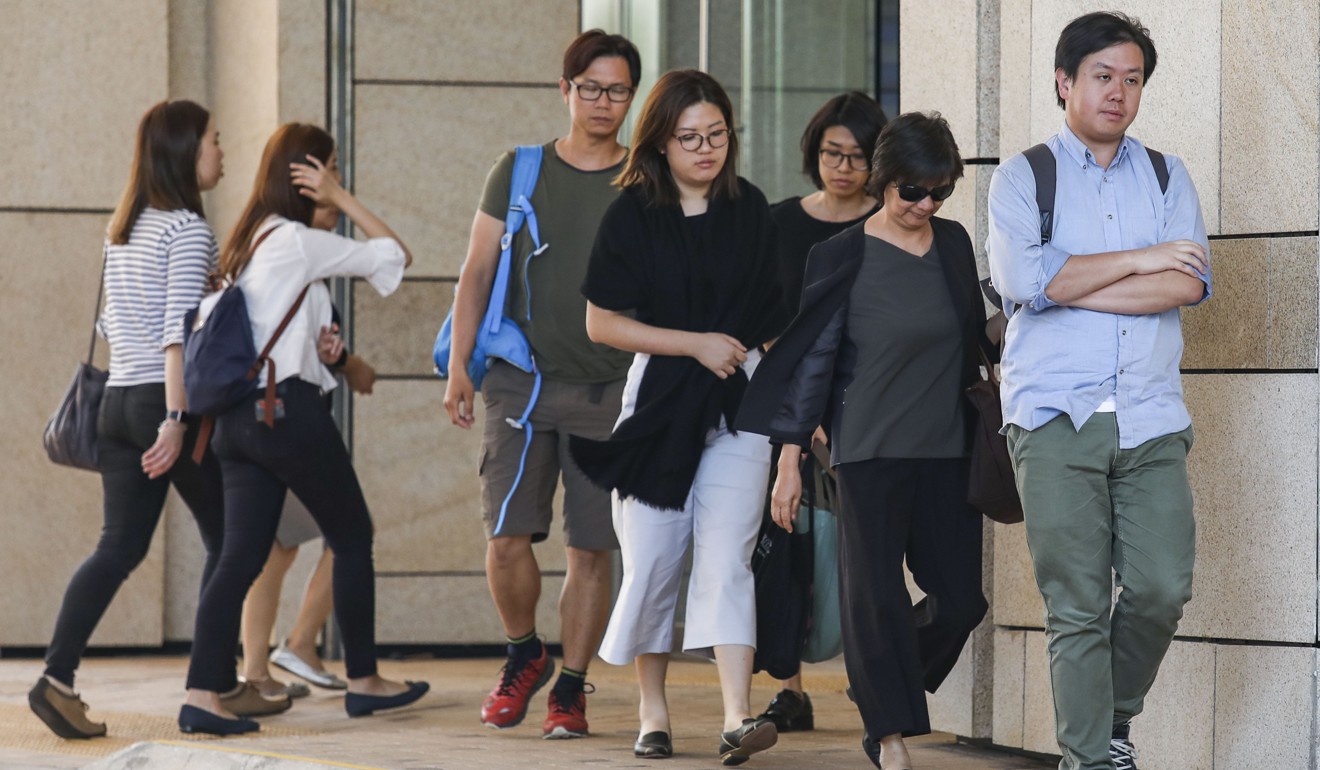
Police training instructor tells inquest he had never encountered bad injuries from handling suspects before death of Hong Kong taxi driver
An instructor from Hong Kong Police College told the Coroner’s Court at the inquest into the death of Chan Fai-wong that he had never known of serious injuries resulting from loading suspects for transport. The taxi driver died a month after sustaining injuries during his arrest by police in 2012

A Hong Kong police instructor told the Coroner’s Court on Thursday that he had never encountered significant injuries from loading suspects for transport until the case of a taxi driver who died after a neck injury in 2012.
But Superintendent Andrew Marcus McGrenra maintained that the force applied by the three police officers involved in the arrest of Chan Fai-wong, 65, on November 11, 2012 was reasonable and proportionate.
“In my 20 years I’ve never seen something go wrong like this,” McGrenra said. “Unfortunately, unfortunately, in a physical situation where one is resisting, things go wrong. But I’ve never known a situation like this. I’ve never heard of one before that encountered significant injuries.”

Several officers had testified that Chan refused to board the vehicle after he was arrested for the alleged assault of his Japanese passenger during a dispute over a taxi fare.
Constable Lam Wai-wing said he tried pulling Chan up into the police van with his arm around the driver’s shoulders but slipped as a result of the man’s vigorous struggle.
Security footage showed Chan was lifted from the ground with Lam’s arm around his neck.
Chan was diagnosed with a cervical dislocation two days after the arrest. He died a month later, on December 12, 2012, of complications arising from the neck injury.
II’ve never known a situation like this. I’ve never heard of one before that encountered significant injuries
An orthopaedic expert said he believed Chan’s neck was injured by the arm around his neck.
On Thursday, McGrenra, an instructor at the weapons training division of Hong Kong Police College since 2000, said officers were trained how to move people safely from one place to another, but were not taught specific techniques to load suspects into a police vehicle.
In terms of resistance control, he observed that the technique Lam used did not directly correspond with suggestions offered in the syllabus.
But McGrenra said that Lam’s use of force would only be considered unreasonable and inappropriate if the officer had intended to grab Chan’s neck from the outset.
He explained that officers have leeway to use other means of control as they see fit so long as they follow the general principle to use proportionate force and apply that force only to protect the suspect and officers in the vicinity.
“In any physical confrontation there is absolutely, and can be, no guarantee that there would be no injuries,” he continued. “But I’ve never known a situation like this.”
Coroner’s officer Derek Wong Chun-hin questioned: “After this case, did anyone review the position to see if there’s a need to provide training?”
“There’s been no specific review on this specific task,” the witness replied.
Coroner Ada Yim Shun-yee will hear closing submissions on Friday.